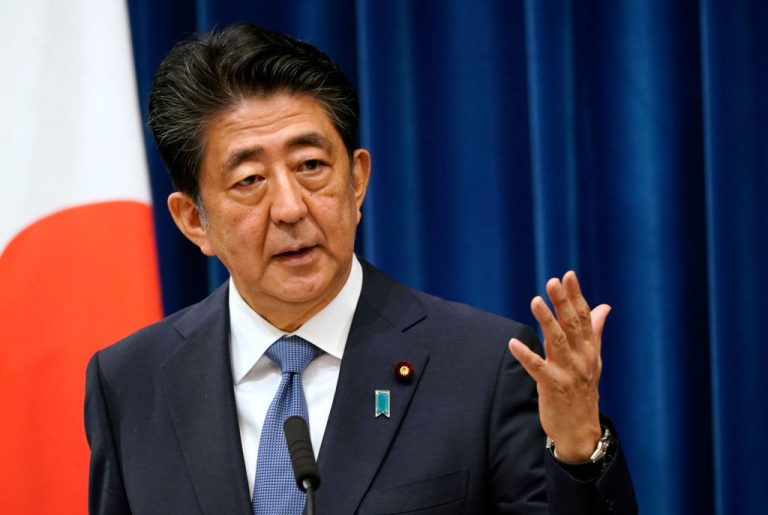After former Japanese Prime Minister Shinzo Abe said on Dec. 1 that neither his country nor the United States could stand by if Communist China attacked Taiwan, Beijing’s foreign ministry summoned Japan’s ambassador for an “emergency meeting” on Friday, Dec. 3.
People’s Republic of China (PRC) Assistant Foreign Minister Hua Chunying called Abe’s remarks “erroneous” and a violation of the basic norms between China and Japan in the meeting with ambassador Hideo Tarumi.
Speaking during a virtual forum organized by the Institute for National Policy Research, a think-tank in Taipei, Abe warned of the serious security and economic consequences if China were to use military force against Taiwan and urged Beijing not to “step onto a wrong path.” He added that an armed invasion of the self-ruling island would be a grave danger to Japan, emphasizing that a “Taiwan emergency is a Japanese emergency.”
Abe’s comments “openly challenged China’s sovereignty and gave brazen support to Taiwan independence forces”, China’s Foreign Ministry said in a statement released on Dec. 2. “China is resolutely opposed to this,” it said, adding that Hua had made “stern representations” to Japan in regards to this matter.
Taiwan, officially known as the Republic of China (ROC), once ruled all of China prior to its defeat on the mainland by communist rebels in 1949. Despite not having U.N. membership, Taiwan functions as a fully independent, democratic nation. The PRC claims Taiwan as an “indivisible” part of its sovereign territory, with the Chinese Communist Party (CCP) vowing to retake the island and retaliate against any country that interferes with its “internal affairs.”
Success
You are now signed up for our newsletter
Success
Check your email to complete sign up
Abe stepped down as Japan’s prime minister last year due to health reasons but remains the chairman of the largest Liberal Democratic faction, and remains influential within the party today.
The veteran politician said that “military adventure from China would lead to economic suicide,” and that a PRC invasion of Taiwan would constitute a significant threat to Japan and therefore “an emergency for the Japan-US alliance.”
“People in Beijing, especially President Xi Jinping, should never have a misunderstanding in recognising this,” he warned.
Relations between Japan and Taiwan are an important part of the two nation’s diplomatic priorities, with the latter controlling the shipping lane through which Japan received much of its oil supply.














